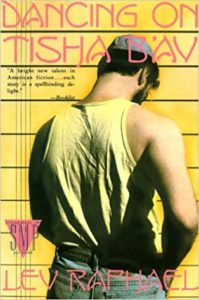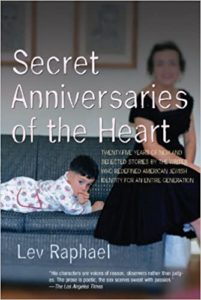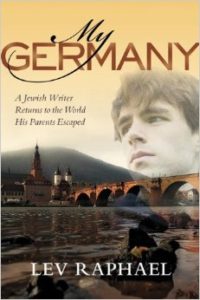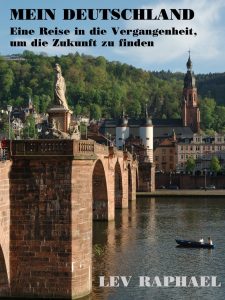I published Dancing on Tisha B’Av almost thirty years ago and the book capped ten years of publishing groundbreaking stories about gay Jews and children of Holocaust survivors. More than that, it fulfilled my childhood dream of having people read a book of mine because I was so crazy about stories even then. I had longed to see a book of mine on library shelves and in bookstores.
I’ve now published twenty-five more books in genres from mystery to memoir and I’ve loved writing each one, and have never known where any book would take me.

Dancing had a unique trajectory. It won a Lambda Literary Award and launched me as a public voice of gay Jews, as someone building bridges between Jews and non-Jews, gays and straights. It started me on what has seemed like a never-ending series of book tours that has included hundreds of invited talks and readings across the U.S. and Canada and in England, Scotland, France, Germany, Israel.
It opened me up to the magic of reaching an audience, however large or small, and how exciting that could be. Thanks to having been a classroom teacher and taken theater classes in college, I knew something about being in front of an audience but needed more experience which I got, in spades. I also received “director’s notes” from my husband (then partner), who came on many of the tours, and I trained myself to become the best possible performer of my own work that I could possibly be, rehearsing before each event.
My career took many turns after that: I reviewed for fifteen years for a handful of newspapers and radio stations, even producing my own local radio show where I interviewed authors like Doris Kearns Goodwin and Salman Rushdie. I launched a mystery series featuring a gay sleuth and his partner. I published in genres I never expected to, like horror, The Vampyre of Gotham, and historical fiction, Rosedale in Love. More recently I returned to university teaching for six years at Michigan State University, which inspired two new crime novels set in academia.

I always counted myself fortunate in having an amazing writing and teaching mentor in college, and when I asked her how I could thank her, all she told me was to “Pass it on.” And that’s exactly what I’ve aimed for in both my writing and teaching over the years, and it’s what I continue to strive for in my online mentoring today. Her guidance is always with me. Truly, that Lutheran professor helped make me the Jewish writer I am today.
Lev Raphael’s author website is levraphael.com, and his online mentoring website is writewithoutborders.com. His collection Secret Anniversaries of the Heart gathers 25 years of his fiction.


![[cover]](http://www.levraphael.com/images/cover_mygermany_152.jpg)


